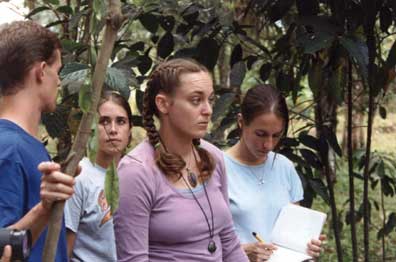
Ohio leaders recall defining moments in Peace Corps
Ohio leaders recall defining moments in Peace Corps
Taft, Hall say service was life-changing, but isn't for everybody
By Mei-Ling Hopgood
From the Dayton Daily News
Bob Taft was a teacher in the African country of Tanzania.
Tony Hall taught English at a vocational school in Thailand.
Alan Guskin helped develop a master's degree program in educational psychology at a university in Bangkok.
Each of these prominent Ohio leaders — a governor, a U.S. ambassador and a former university president — said their volunteer experience in the 1960s was pivotal to their lifelong devotion to public service. But they also said the Peace Corps was a tough job that isn't for everybody. Guskin, the former president and chancellor of Antioch University, was at the University of Michigan when President John F. Kennedy presented his idea of an army of peace volunteers. While other students went south as part of the civil rights movement, Guskin volunteered for the Peace Corps, thinking it would be safer.
"I don't think any of us saw the real risk physically overseas. It turns out it was a real risk, probably bigger than going down South," said Guskin, who at 66 still works as an Antioch faculty member from Edmonds, Wash. "We were young people and were invulnerable to disease and violence and everything else, right?"
For many volunteers then and now, the prospect of helping people combined with the adventure of traveling overseas is enticing.
"For a 21-year-old kid to get away from the security of your own environment, that was a major change," said Kettering native Hall, 61, who joined a year after graduating from Denison University.
Guskin, Taft and Hall went through one to three months of training in the United States before going abroad, and had more training there. Today, volunteers do most of their training in their host country. Hall recalled that volunteers even had a psychological evaluation.
Taft, now 61 and in his second term as Ohio governor, said his experience in a boarding school in a village called Misungwi from 1963-65 gave him confidence dealing with students daily. It also "helped engender within me a lifetime of interest in education," he said.
Hall, who served in the Peace Corps from 1966-67, said living and working among the poor in the town of Nakhon Sawan, between Bangkok and Chiang Mai, was a seedling to his dedication to hunger relief. Hall was Dayton's longest serving member of Congress before he left the seat he had held for nearly 24 years in September 2002 and accepted a job as ambassador to the United Nations food and agriculture agencies in Rome.
Guskin said his Peace Corps experience from 1961-64 changed his life, though he admits he had an "un-Peace Corps-like job."
"Here I was really doing something that was seen as very, very important," he said. It wasn't just "teaching university because you can do that anywhere. It was the fact you were part of the Peace Corps. . . . People treated you specially and you felt like you were really making a special contribution to the country."
But Guskin said it's unrealistic to think the Peace Corps is an agent for social change in developing countries.
"The whole notion of our changing the economic and social development of a country is PR, not real," he said. "What we do is work with people, individuals. It's the most successful people-to-people program probably in history. But you can't talk about economic and social development, which is what we used to like to talk about a lot. We were teachers. We'd work in rural areas. We work in medical technology. But it wasn't as if we were going to change the world."
Guskin said two long-standing problems in the Peace Corps deserve more attention. Many volunteers struggle with illness, said Guskin, who contracted hepatitis while in Thailand. And, he said, volunteers are unprepared for the culture shock they experience when they arrive in a foreign country and are even more unprepared when they come home.
All three said that crime and violence weren't a great worry while they served. But Hall said he now cautions young women about serving in militantly Muslim countries.
"You're sent to countries in the world and you're sent on your own," Hall said. "You're not going to Kettering, Ohio. You've got to go into the Peace Corps with your eyes open."
